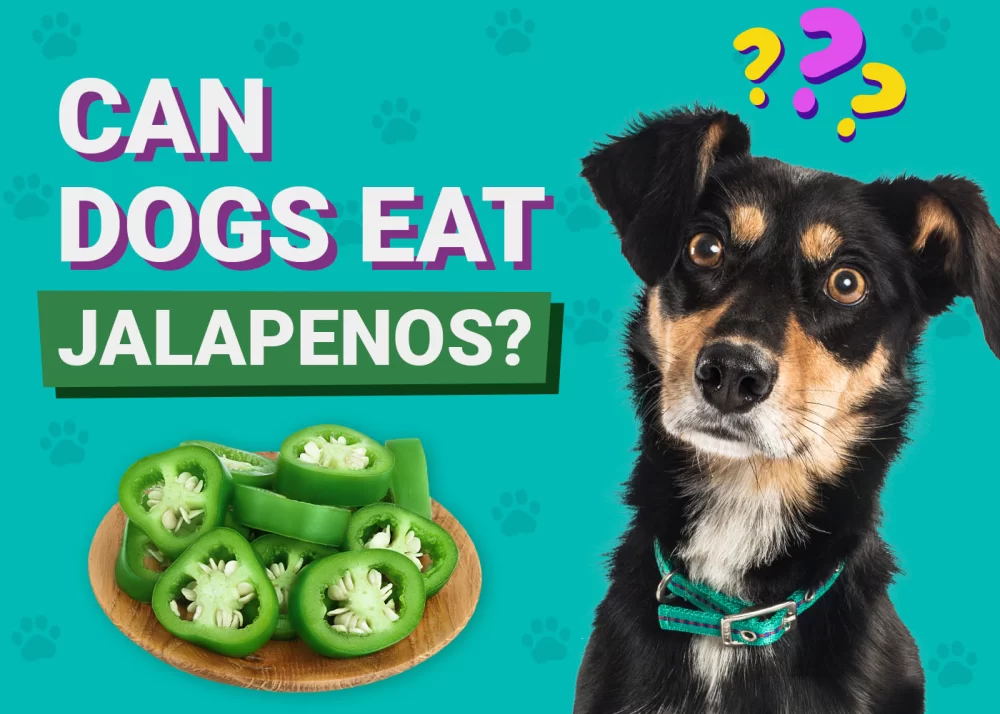Can Dogs Eat Chili Peppers? Risks and Facts You Need to Know
As a dog owner, you're probably aware of the importance of feeding your furry friend the right foods. While it’s tempting to share a bite of your meal, it's crucial to be aware of what foods are safe for dogs. One food that often raises concerns is chili peppers. You might be wondering, can dogs eat chili peppers? The short answer is no, dogs should not eat chili peppers. But let’s dive deeper into why they can be harmful and what you need to know about this spicy food.
1. What Are Chili Peppers and Why Are They Dangerous to Dogs?
Chili peppers, often known for their spicy kick, belong to the Capsicum genus. These peppers are rich in a compound called capsaicin, which is responsible for the heat or spiciness. While humans might enjoy the sensation that capsaicin provides, it can have adverse effects on dogs. Dogs' digestive systems are not equipped to handle spicy foods, and capsaicin can irritate their stomach lining and cause a variety of unpleasant symptoms.
Although chili peppers themselves aren’t toxic in the traditional sense, they can cause significant discomfort for your dog. If your dog eats chili peppers, they might experience digestive upset, vomiting, and even more serious symptoms, depending on how much they consumed.
2. The Effects of Chili Peppers on Dogs
When dogs consume chili peppers, they can experience several reactions. The most common effects are:
- Gastrointestinal distress: Dogs may experience vomiting, diarrhea, or stomach cramps after eating chili peppers. Their digestive systems simply aren’t designed to process spicy foods.
- Excessive drooling: The heat from the chili peppers may cause your dog to salivate excessively as their body tries to deal with the irritation.
- Discomfort and distress: Dogs may exhibit signs of pain, such as whining, pacing, or even trying to rub their faces. This can be a direct result of the burning sensation caused by the capsaicin.
- Long-term effects: While most dogs will recover from a small amount of chili pepper ingestion, consuming large amounts over time could lead to chronic gastrointestinal issues or even more severe health problems, such as inflammation of the digestive tract.
3. What Happens If Your Dog Eats Chili Peppers?
If your dog accidentally eats chili peppers, it’s important to monitor them closely for signs of discomfort. The severity of their reaction will depend on factors like the amount of chili they consumed, the type of pepper, and their overall health. Here are some signs that your dog may have eaten chili peppers:
- Vomiting or diarrhea
- Excessive drooling or lip licking
- Signs of abdominal pain or discomfort
- Panting or breathing difficulties
- Restlessness or agitation
If your dog shows any of these symptoms, it's essential to contact your veterinarian right away. Your vet may advise you to bring your dog in for an examination or provide guidance on how to treat them at home. In most cases, the symptoms will subside within a few hours, but it's always better to err on the side of caution.
4. Why Do Dogs Love to Eat Spicy Food?
It might seem strange, but some dogs are naturally curious about spicy foods like chili peppers. Dogs often look to their owners for food scraps and may end up snacking on something they shouldn’t. It’s important to remember that dogs do not have the same taste receptors as humans. While we might enjoy the intense flavor of spicy food, dogs do not experience spice the same way. Instead, they might be attracted to the smell or texture of the food, not the heat.
5. Can Chili Peppers Cause Toxicity in Dogs?
While chili peppers themselves are not generally toxic to dogs, they can still cause significant harm. Capsaicin, the compound responsible for the pepper's heat, can irritate the mucous membranes in your dog’s mouth and digestive tract. Ingesting large amounts of chili peppers could lead to more severe reactions, such as dehydration from vomiting or diarrhea, or even shock in extreme cases. Furthermore, some dogs may be more sensitive to spicy food than others, depending on their breed, age, and health condition.
6. What to Do If Your Dog Eats Chili Peppers
If you catch your dog eating chili peppers, the first step is to stay calm. Assess how much your dog has eaten and watch for any signs of distress. If your dog only ate a small amount, they may experience mild discomfort, but typically they will recover on their own within a few hours. However, if they consumed a large quantity or are showing serious symptoms, contact your veterinarian for advice. Your vet may recommend bringing your dog in for treatment or provide instructions for home care, such as giving your dog small amounts of water or bland food to soothe their stomach.
7. How to Prevent Your Dog from Eating Chili Peppers
Prevention is always better than treatment. To keep your dog safe, take the following precautions:
- Keep chili peppers out of reach: Store chili peppers and any food containing chili in places where your dog cannot access them. Be mindful when cooking and make sure your dog is not able to sneak a taste of your spicy dishes.
- Teach your dog not to beg: Training your dog not to beg for food at the table can help reduce the likelihood of them snatching spicy food when you’re not looking.
- Safe food alternatives: If you want to share a snack with your dog, opt for safe, dog-friendly treats like carrots, green beans, or plain chicken. These foods are both healthy and safe for dogs to enjoy.
8. Are There Any Spices That Are Safe for Dogs?
While chili peppers are best avoided, there are other spices that are safe for dogs in moderation. For instance, cinnamon and turmeric can offer some health benefits, such as anti-inflammatory properties. However, always make sure to consult your veterinarian before adding any new spices to your dog’s diet. Some spices, like garlic and onion, are highly toxic to dogs, so it’s essential to be cautious.
In conclusion, while chili peppers might seem harmless to us, they can cause significant discomfort and potential harm to our canine companions. It’s best to keep chili peppers and other spicy foods out of your dog’s reach to ensure their health and well-being. Always remember that when in doubt, consult your vet for guidance on safe foods and treats for your furry friend.












